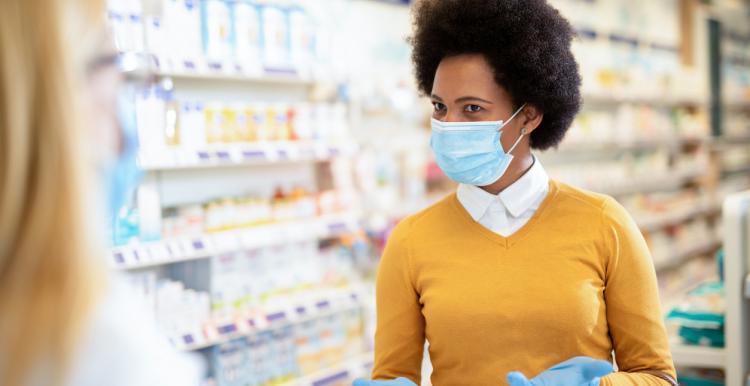Information on Coronavirus

For the most up to date information about Coronavirus (COVID-19) be sure to check Gov.uk.
Coronavirus advice
- Stay at home as much as possible.
- Work from home if you can.
- Limit contact with other people.
- Keep your distance from people not in your household (2 metres apart where possible).
- Wash your hands regularly.
- Wear a face covering or mask inside shops, hospitals, on public transport, and in enclosed spaces where social distancing is not possible and where you may encounter people you would not usually meet.
- Self-isolate if you or anyone in your household, workplace or social bubble has symptoms.
What you can and can't do
The government has set out its plan to return life to as near normal as we can, but in a way that continues to protect our communities and our NHS.
Find out more about what you can and can't do including information about travel restrictions, who you're allowed to meet with and what shops and business can now open.
If you do go outside or meet with others, remember that it's still important to social distance.
If you think you might have coronavirus
Symptoms
-
A high temperature.
-
A new, continuous cough.
- Loss/change in your normal sense of smell or taste.
What to do if you have these symptoms
Do not go to a GP surgery, pharmacy or hospital. You should stay at home and self isolate.
Only call 111 if you cannot get help online.
You do not need to contact 111 to tell them you're staying at home. Read the NHS advice about staying at home.
Use the NHS 111 online coronavirus service if:
- You feel you cannot cope with your symptoms at home.
- Your condition gets worse.
- Your symptoms do not get better after 7 days.
How to self isolate if you or someone in your house has coronavirus
If you have symptoms of coronavirus you should stay home and self isolate. What this means is you should not leave your house, even to do shopping, to avoid spreading the virus.
- If you live alone, you should stay at home for 10 days from when your symptoms started.
- If you live with others, then you must stay at home for seven days from when your symptoms started. However, everyone else in the household who is well must stay at home and not leave for 14 days.
For more information about when to self isolate and what this means for families visit the Government website.
How to avoid catching or spreading germs
Do:
-
Wear a face covering or mask (if you can) inside shops, hospitals, on public transport, and in enclosed spaces where social distancing is not possible and where you may encounter people you would not usually meet.
-
Cover your mouth and nose with a tissue or your sleeve (not your hands) when you cough or sneeze.
-
Put used tissues in the bin straight away.
-
Wash your hands with soap and water often, and for 20 seconds – use hand sanitiser gel if soap and water are not available.
-
Try to avoid close contact with people who are unwell.
Don't:
-
Do not touch your eyes, nose or mouth if your hands are not clean.
Advice for people at high risk
The guidance for the clinically extremely vulnerable is that shielding has been paused. To find out what this means, click the button below.
In the event of a local lockdown, see the information on the government site and visit your local authority’s website for further guidance.
If you’re clinically extremely vulnerable, you are advised not to enter any area where shielding advice is in place.
Getting tested for Coronavirus (COVID-19)
Guidance on coronavirus testing, including who is eligible for a test, how to get tested and the different types of test available is available on the Government's website.
Further information
NHS England had produced a list of common questions about coronavirus, covering advice for you and your family, how it's caught and spread, prevention, self-isolation, testing and treatment and foreign travel.
Other places for information:
- NHS coronavirus information
- GOV.UK information on coronavirus and the situation in the UK
- GOV.UK foreign travel advice
- World Health Organization: coronavirus myth busters
Treatment for coronavirus
There is currently no specific treatment for coronavirus.
Antibiotics do not help, as they do not work against viruses.
Treatment aims to relieve the symptoms while your body fights the illness.
You'll need to stay in isolation, away from other people, until you have recovered.